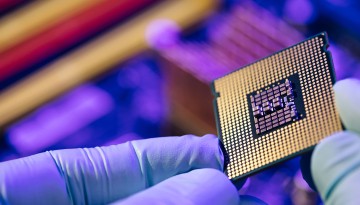Cornell University Launches Course for Veterans to Expand Microchip Workforce in New York State
The Cornell NanoScale Science and Technology Facility (CNF) has partnered with two academic institutions to offer a free Microelectronics and Nanomanufacturing Certificate Program to veterans and their dependents.
The 12-week program will be offered in the fall 2024 semester and will cover the basic technologies and skills used to fabricate microelectronic devices, including laboratory safety, vacuum technology, patterning, microscopy, characterization, and thin-film deposition and etching.
“CNF is proud to offer this program that supports veterans and their families, while also addressing the growing demand for laboratory and manufacturing technicians in New York, particularly in the semiconductor industry,” said Judy Cha, CNF director and professor of materials science and engineering.
Participants completing the program will receive a certificate from the Penn State Center for Nanotechnology Utilization and will have the option to test for three technical certifications offered by the American Society for Testing and Materials.
“These certificates will position program participants as qualified candidates for well-paying jobs in nano and microelectronics, and the skills and topics covered in the program can be useful in other industries as well,” said Ron Olson, CNF director of operations. “During weekly employer-led presentations, students will hear firsthand about job opportunities from our industry partners.”
The program – funded by the National Science Foundation and managed by Pennsylvania State University – is being offered in New York state for the first time, with CNF providing laboratory access and hands-on training, while Tompkins Cortland Community College will provide academic and career support services such as advising and job placement assistance. Daily lectures will be streamed from Penn State.
Applications will be reviewed starting on June 1 for rolling admissions for the term beginning Sept. 3. CNF anticipates enrolling a cohort of six participants for the fall semester with a second cohort in spring 2025.

